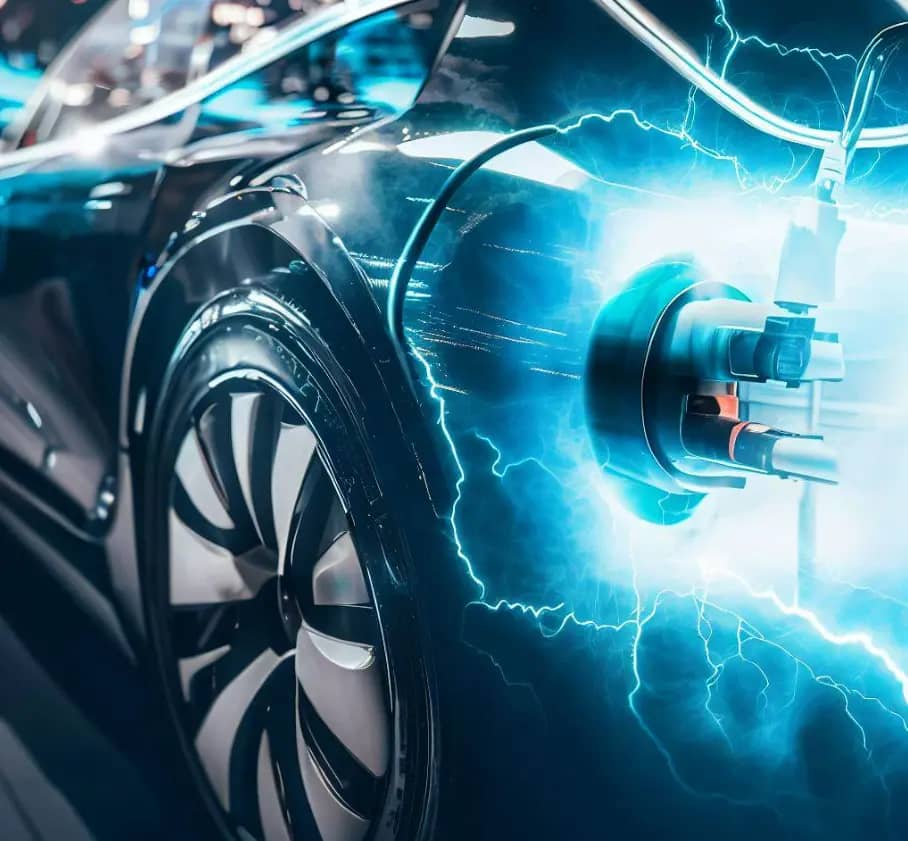Electric cars have taken the automobile industry by storm, and one of their best features is their range. There are a lot of factors that go into determining how far an electric car can go on a single charge, including the model and make. Let’s look at the shortest, average, and longest ranges of electric vehicles right now to get a sense of their range.
A Smart Fortwo EQ with 95 km (59 miles) range is at the bottom of the list. Electric vehicles have an average range of 348 kilometers (216 miles), according to the Electric Vehicle Database. The Lucid Air Dream Range Edition has a range of 685 kilometers (426 miles) at the top.
Please note that these numbers are based on data available at the time this article was written, and new models with longer ranges are being developed all the time.
In reality, most electric vehicle drivers don’t use up their full charge in one day, even though they worry about running out of power. In Europe, the average American drives only about 59.5 km (37 miles) per day. This varies by country, but it’s usually less than half of what Americans drive on a daily basis.
In spite of this, you should consider your daily driving habits when selecting an electric vehicle. Factors like the length of your commute, your driving style, and the weather can all affect range.

What’s the best electric car for your daily commute? Which one has the longest range? And how much range do you really need? Let’s take a closer look at the factors that affect electric car ranges in the following sections.
The adoption of electric cars is growing at an unprecedented rate. In 2022, sales of electric cars exceeded 10 million, which represents a 55% increase over the previous year. However, despite this significant growth, many consumers still have concerns about the range of electric cars.
According to a Mobility Monitor report, around 40% of potential electric vehicle drivers worry that they won’t be able to charge their car when they need to and are afraid of running out of power on the road. This fear is understandable, but it’s also unnecessary.
The average electric vehicle has a range of 348 km (216 miles), according to data available in December of 2022. It’s important to note that the range of an electric car depends on several factors, including the make and model of the car, the battery’s state of charge, driving behavior, and even weather conditions.
Despite these variables, the median range of electric vehicles has increased significantly in recent years. In 2011, there were only three different models of all-electric vehicles available on the market, with a range of approximately 100 km to 150 km (63 to 94 miles) on a full charge, according to the US Environmental Protection Agency. However, today, the number of electric vehicles available with a range of 348 km (216 miles) or more is much higher.
It’s clear that electric cars are becoming more and more accessible to consumers, with longer ranges and better technology. As adoption of electric cars continues to grow, it’s likely that concerns about range will become a thing of the past.
Read More: Benefits of connected home EV Chargers
Currently, the Lucid Air Dream (Range Edition) holds the record for the longest range electric car. Based on moderate driving style and weather, this vehicle can cover 685 km (425 miles).
In real life, an electric car’s range depends on a lot of things. As an example, Lucid Air’s Dream Range Edition claims to have a minimum range of 505 km (313 miles) if you’re on the highway in cold weather, and a maximum range of 960 km (596 miles) if you’re in the city.
There’s also driving behavior, terrain, and accessories like air conditioning and heating that can affect an electric car’s range. Despite these variables, electric cars are getting better and better, with longer ranges and better technology. As the industry continues to grow, electric vehicles will have even longer ranges soon.
Here are the top 5 longest-range electric cars:
On the other end of the spectrum, the smallest electric car we could find when writing this article was the Smart EQ fortwo Cabrio, with a range of only 95 km (59 miles) on a single charge. However, with a charging speed of 22 kW, a full charge would take only 55 minutes, making it a convenient option for city driving.
The range of electric vehicles has come a long way since the early days of EVs. The best-selling electric car, the Nissan LEAF, had a maximum range of about 160 km (100 miles) when it was first introduced, but the 2023 Nissan Leaf now has a range of up to 341 km (212 miles).
Other affordable electric cars like the Hyundai Kona, Volkswagen ID.4, and Kia EV6 can reach 400-500 km (249-310 miles) on a single charge. This is due to the fact that batteries have become more powerful and less expensive over the years.
Batteries are the most expensive component when manufacturing an electric vehicle, but their price has fallen significantly over the past decade. As battery technology continues to improve and become more affordable, electric vehicles are expected to reach cost parity with internal combustion cars by 2026. This will make electric vehicles an even more attractive option for consumers, as they will not only be better for the environment but also more affordable in the long run.